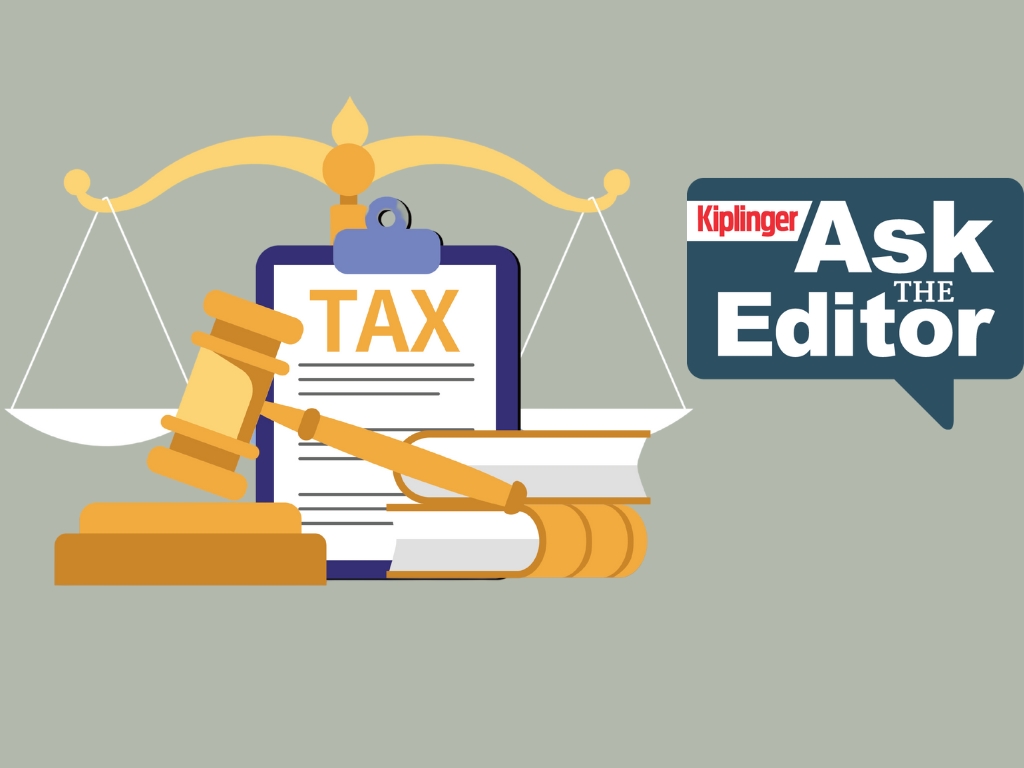Third Stimulus Check Calculator
See how much your third stimulus check should have been using this handy tool.


In March 2021, President Biden signed the American Rescue Plan Act, which authorized a third round of federal stimulus checks worth up to $1,400 for each eligible person ($2,800 for couples), plus an additional amount of up to $1,400 for each dependent. The IRS issued all the third-round stimulus checks by the end of 2021, but eligible people who didn't receive a check last year can still get stimulus money by filing a 2021 tax return now and claiming the recovery rebate credit. (And some Americans will also get a state "stimulus check" this year.)
However, not everyone who is eligible for a third stimulus check got the full amount (or will get the full amount through the recovery rebate credit). As with the first- and second-round payments, the third-round stimulus checks were reduced – or eliminated – for people with an income above a certain amount.
To see how large your third stimulus payment should have been, answer the three questions in the calculator below and we'll give you a customized estimate.

Sign up for Kiplinger’s Free E-Newsletters
Profit and prosper with the best of expert advice on investing, taxes, retirement, personal finance and more - straight to your e-mail.
Profit and prosper with the best of expert advice - straight to your e-mail.
Different Phase-Out Rate
Although the income levels at which third stimulus checks started to phase out (i.e., be reduced) were the same as the amounts used for the first two stimulus payments, the rate at which the phase-out occurred was different. As a result, you may not have gotten a third stimulus check even if you received payments in one or both of the first two rounds.
More Money for Certain Families
One big change with third stimulus checks was that an extra $1,400 was tacked on to your payment for any dependent in the family. For the first- and second-round payments, the additional amount allowed – $500 for first-round payments and $600 in the second round – was only given for dependent children age 16 or younger. As a result, families with older children, including college students age 23 or younger, or with elderly parents living with them, didn't get the extra money added to their previous stimulus payments. That's not the case for third-round stimulus checks.
Amount Based on 2019 or 2020 Tax Return
For third-round stimulus payments, eligibility and amounts were based on either your 2019 or 2020 return. If your 2020 tax return wasn't filed and processed by the IRS by the time the tax agency started processing your third stimulus payment, then the IRS used information from your 2019 tax return. If your 2020 return was already filed and processed when the IRS was ready to send your payment, then your stimulus check eligibility and amount was based on the information on your 2020 return. If your 2020 return was filed and/or processed after the IRS sent you a third stimulus check, but before December 1, 2021, the IRS sent you a second "plus-up" payment for the difference between what your payment should have been if based on your 2020 return and the payment actually sent based on your 2019 return. As a result, your third stimulus check may have been higher or lower depending on when you filed your 2020 tax return.
State Stimulus Checks in 2022
As mentioned earlier, many states are sending payments to their residents in 2022 to help with high inflation and other economic woes. For the most part, these payments come from a budget surplus or federal COVID-relief funds. To see if your state is sending (or has sent) a payment this year, see States Sending Stimulus Checks.
Profit and prosper with the best of Kiplinger's advice on investing, taxes, retirement, personal finance and much more. Delivered daily. Enter your email in the box and click Sign Me Up.
Rocky Mengle was a Senior Tax Editor for Kiplinger from October 2018 to January 2023 with more than 20 years of experience covering federal and state tax developments. Before coming to Kiplinger, Rocky worked for Wolters Kluwer Tax & Accounting, and Kleinrock Publishing, where he provided breaking news and guidance for CPAs, tax attorneys, and other tax professionals. He has also been quoted as an expert by USA Today, Forbes, U.S. News & World Report, Reuters, Accounting Today, and other media outlets. Rocky holds a law degree from the University of Connecticut and a B.A. in History from Salisbury University.
-
 13 Answers to Pressing Social Security Questions
13 Answers to Pressing Social Security QuestionsFrom smart claiming strategies for couples to tips on maximizing your monthly check, we have advice that can help you.
-
 Keep Tax Collectors at Bay with Muni Bond Funds
Keep Tax Collectors at Bay with Muni Bond FundsMunicipal bonds can be good insurance against inflation — and interest is tax-free. But as with all investments, understanding risk is key.
-
 Ask the Editor, June 27: Tax Questions on Disaster Losses, IRAs
Ask the Editor, June 27: Tax Questions on Disaster Losses, IRAsAsk the Editor In this week's Ask the Editor Q&A, we answer tax questions from readers on paper checks, hurricane losses, IRAs and timeshares.
-
 Ask the Editor, June 20: Questions on Tax Deductions and IRAs
Ask the Editor, June 20: Questions on Tax Deductions and IRAsAsk the Editor In our latest Ask the Editor round-up, Joy Taylor, The Kiplinger Tax Letter Editor, answers four questions on deductions, tax proposals and IRAs.
-
 Don't Miss These Four Tax Breaks for Americans Living Abroad in 2025
Don't Miss These Four Tax Breaks for Americans Living Abroad in 2025International Tax U.S. expats can reduce their tax burden by taking advantage of a handful of tax credits and deductions.
-
 Ask the Editor, June 13: Questions on Home Sales and Taxes
Ask the Editor, June 13: Questions on Home Sales and TaxesIn our latest Ask the Editor round-up, Joy Taylor, The Kiplinger Tax Letter Editor, answers questions on home sales and calculating tax basis in a home.
-
 Ask the Editor, June 6: Questions on Hobby Losses, Medicare
Ask the Editor, June 6: Questions on Hobby Losses, MedicareIn our latest Ask the Editor round-up, Joy Taylor, The Kiplinger Tax Letter Editor, answers questions on hobby losses, I bonds and Medicare premiums.
-
 Ask the Editor, May 30: Questions on the One Big Beautiful Bill
Ask the Editor, May 30: Questions on the One Big Beautiful BillAsk the Editor In this week's Ask the Editor Q&A, we answer tax questions from readers on the House-passed “One Big Beautiful Bill.”
-
 Ask the Editor, May 23: Reader Questions on Gifts, Estate Tax
Ask the Editor, May 23: Reader Questions on Gifts, Estate TaxIn this week's Ask the Editor Q&A, we answer tax questions from readers on gifts, the estate tax and stepped-up basis upon death.
-
 Ask the Editor, May 16 — Reader Questions on Capital Gains
Ask the Editor, May 16 — Reader Questions on Capital GainsIn our latest Ask the Editor round-up, Joy Taylor, The Kiplinger Tax Letter Editor, answers three questions from readers on capital gains.
